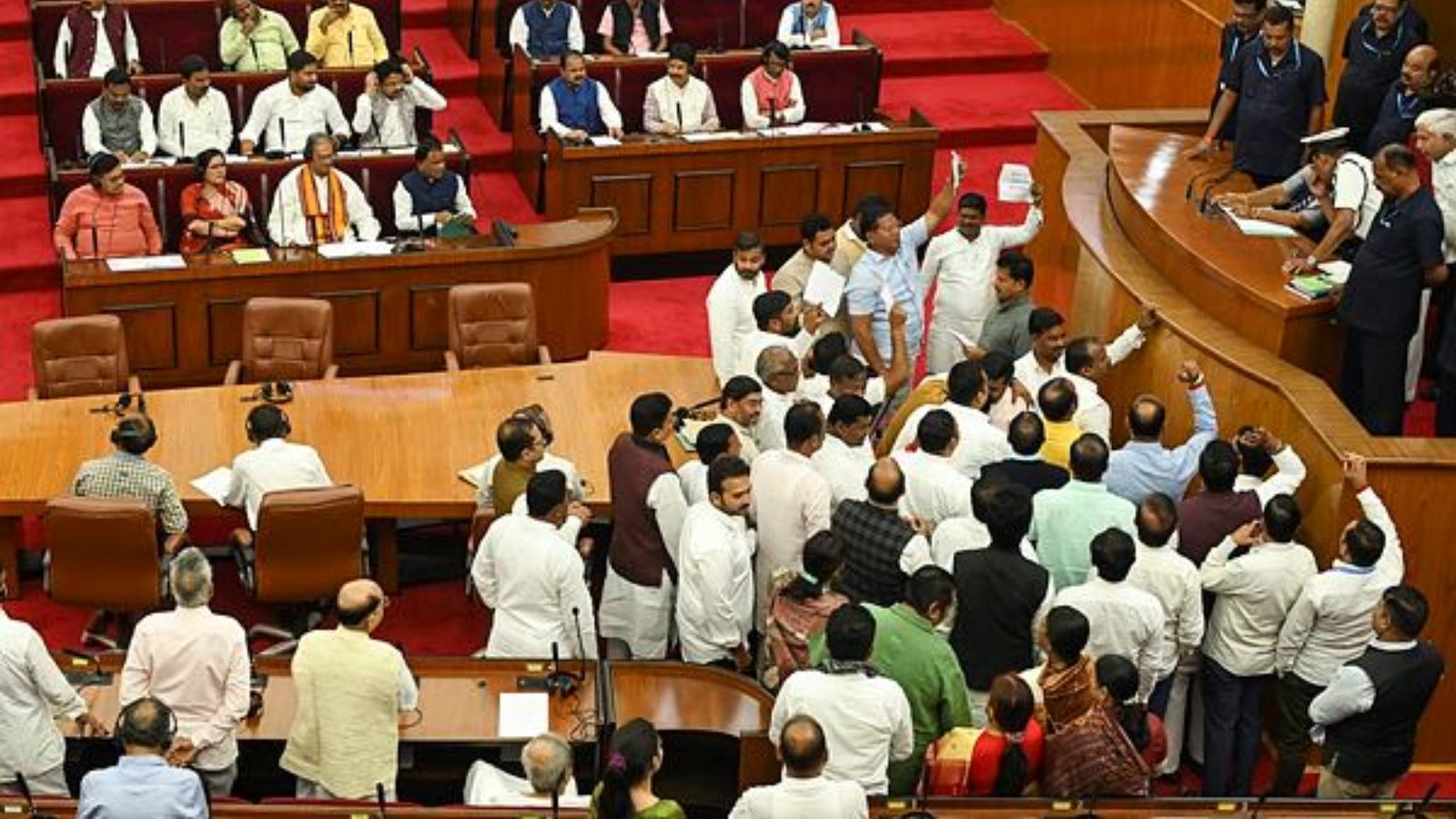 |
|
The Odisha Assembly witnessed a significant political uproar on Tuesday stemming from the omission of the words 'socialist' and 'secular' from the Preamble to the Constitution displayed within the Assembly chamber. This incident occurred just a day after the Supreme Court dismissed a Public Interest Litigation (PIL) seeking the removal of these very words from the national Preamble. The opposition parties, namely the Biju Janata Dal (BJD) and the Indian National Congress (INC), immediately condemned the omission, characterizing it as a blatant disregard for the Constitution and a deliberate attempt to undermine its fundamental values. The timing of the incident, immediately following the Supreme Court's decision, fueled speculation of a deliberate act, raising concerns about the intentions behind the omission. The protest, led by prominent members of both opposition parties, caused significant disruption to the proceedings of the Winter Session, resulting in repeated adjournments as the opposition demanded an immediate rectification of the 'error'.
The BJD, a regional party dominant in Odisha, spearheaded the protest. Senior BJD leader Ranendra Pratap Swain highlighted the discrepancy between the Supreme Court's rejection of the PIL advocating for the removal of 'socialist' and 'secular' from the Constitution and the omission of these words from the Assembly's displayed Preamble. He explicitly labeled the omission an 'affront to the Constitution', underscoring the gravity of the situation in the eyes of the opposition. The Congress, further amplifying the criticism, echoed the BJD's sentiments and accused the ruling Bharatiya Janata Party (BJP) of harboring disrespect for the Constitution. Their representative, Legislature Party leader Ramachandra Kadam, directly implicated the BJP, alleging a calculated conspiracy behind the omission of these crucial words. The coordinated response from both opposition parties underscores the shared concern over the implications of such an action and the perception of an attack on constitutional values.
However, the BJP offered a contrasting perspective. Their MLA, Irasis Acharya, argued that the Preamble displayed in the Assembly was a replica of the original Preamble adopted by the Constituent Assembly, prior to the 42nd Amendment of 1976. This amendment was responsible for the addition of the words 'socialist' and 'secular' to the Preamble. Acharya maintained that the BJP held profound respect for the Constitution and its Preamble, emphasizing the latter as the 'soul of the Constitution'. This statement positions the BJP's response as a defense against accusations of disrespect, highlighting the historical context of the Preamble's evolution and seeking to shift the focus from a potential deliberate action to an unintentional display of an older version. The BJP’s defense hinges on a technicality, attempting to shift the blame and deflect accusations of purposeful constitutional disregard onto a claim of historical accuracy and a misunderstanding of the displayed text.
The controversy highlights the deep-seated political divisions in Odisha and the sensitive nature of constitutional interpretations. The act of displaying an altered Preamble, irrespective of intention, has ignited a significant political battle with far-reaching implications. The differing narratives offered by the opposition and ruling party underscore the varied interpretations of the event and the strategic maneuvering undertaken by each side to garner political advantage. The incident serves as a potent reminder of the ongoing tension between various political forces within India and the ever-present possibility of constitutional issues becoming flashpoints of political conflict. Further investigation and clarification are needed to fully understand the circumstances surrounding the omission, whether accidental or intentional, and to assess the consequences of this politically charged incident.
The incident raises important questions regarding the oversight and maintenance of official documents within the Odisha Assembly. The apparent lack of accuracy in the displayed Preamble raises questions about the due diligence undertaken and the potential for similar inaccuracies in other official representations. This raises wider concerns about the procedures and quality control measures within government institutions. The incident necessitates a thorough investigation into the processes that led to the incorrect Preamble being displayed, to prevent similar errors from occurring in the future. The response of the Assembly authorities to this controversy will be crucial in shaping public perception of the incident and demonstrating their commitment to ensuring the accurate representation of constitutional values.
